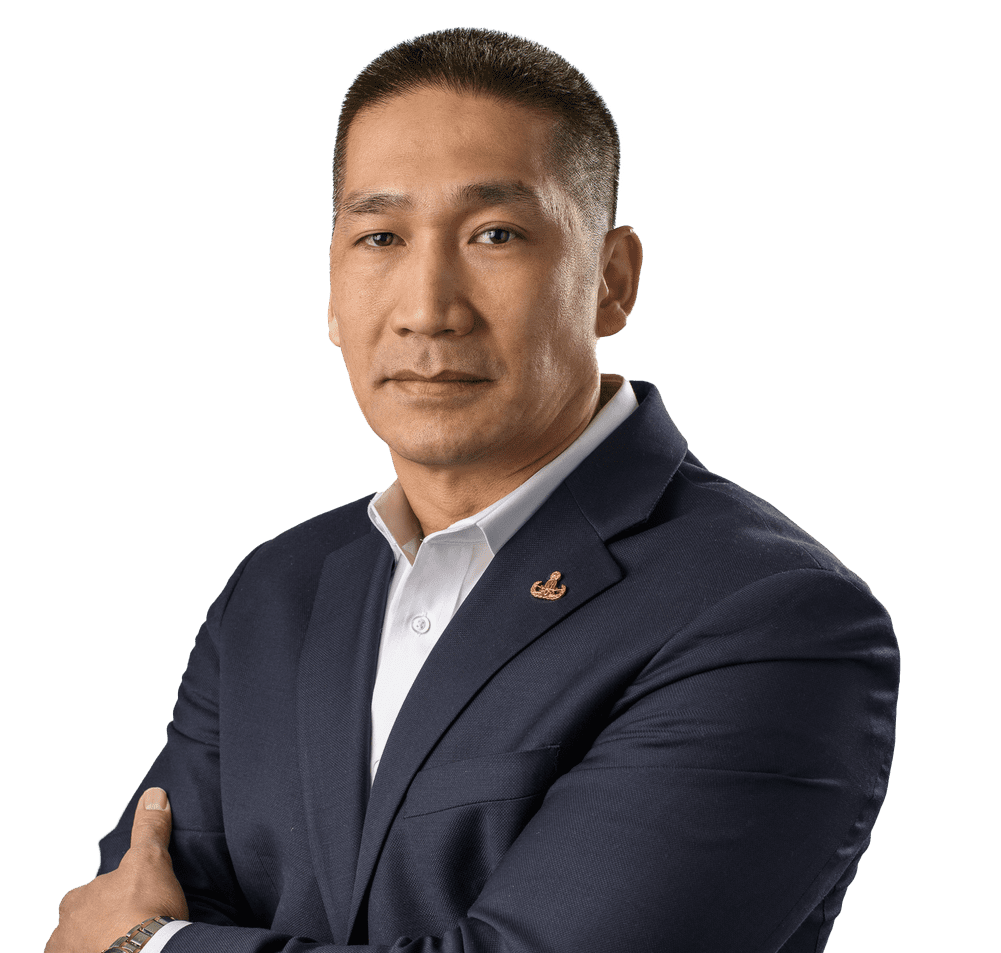Less than an hour after the polls closed Tuesday, the candidate endorsed by former President Donald Trump, Hung Cao, became the projected winner of the Republican primary with hopes of a November ousting of Democratic Sen. Tim Kaine, who first took office in 2013.
Cao released a statement about his “decisive victory” soon after the race was called.

“Tomorrow, we begin our campaign to save the country that saved my life. I spent 25 years in the Navy, while Tim Kaine spent 30 years in elected office. The taxpayers signed the front of our paychecks for the same amount of time. The difference is this: Tim Kaine got rich, and I got scars,” Cao said. “President Trump and I will win in November, we will secure the border, we will protect Social Security, and we will save America. I spent 25 years fighting for this country, and I’m not done.”
With 94% of the precincts reporting, Cao led the candidate coming in a distant second, Scott Parkinson, who received dozens of endorsements from national Republican leaders in the House and Senate, by more than 50 percentage points. Cao received 151,452 votes at 62.3%, while Parkinson received 26,145 votes at 10.7%, according to unofficial numbers from the Virginia Department of Elections.
The other three candidates split the remaining votes fairly evenly, with Eddie Garcia at 9.8%, Chuck Smith at 8.8% and Jonathan Emord at 8.5%.
Chapman Rackaway, chair of political science at Radford University, said the outcome did not surprise him.
“It is very clear that Donald Trump casts a very long shadow over the GOP right now,” he said. “It certainly seems to be going the way it seemed it would in advance.”
He also noted that, like most current politics, the race seemed to come from the national GOP down rather than from localities up. For example, in Rackaway’s precinct in Southwest Virginia, the Senate race was the only one on the ballot. He said people he spoke with coming to the polls “really hadn’t heard much about the candidates.”
He said the region doesn’t have as much of a consistent media presence as other parts of the state, and there weren’t many ads related to the Senate race. As a political scientist, he collects direct mailers from political campaigns, and noticed that few came to his mailbox.
“I think there’s a lot of people in Southwest Virginia feeling like they’re kind of shut out on this one,” he said. “The campaigns did not seem to think that Southwest Virginia was an area they wanted to target.”
None of the Republican candidates’ fundraising totals leading up to the primary came close to competing with incumbent Kaine’s nearly $11 million in campaign contributions. The Virginia Democratic primary was canceled.
“When you’ve been a long-term senator and haven’t faced a challenge in six years, you can slowly pace your fundraising and still amass a lot of money over time. And that’s the whole reason you do it. What you hope is that the opposition either cannot or does not want to raise that kind of money,” Rackaway said.
Cao earned the most of the Republican field, with nearly $2.5 million.
“Cao’s going to have to get back to fundraising quickly. He had to spend a lot to get here, but having the Trump endorsement and having that umbrella over him means he should be able to replenish quickly,” Rackaway said.
Cao, who lives in Loudoun County, also has received the most media attention of the five candidates during the race — first when questions were raised about why a political action committee he founded to raise money for General Assembly candidates spent much of it on his own consultants, and then when he responded by calling the Staunton News Leader a “podunk local paper.” He later said that Abingdon was too far to drive for a campaign forum.



